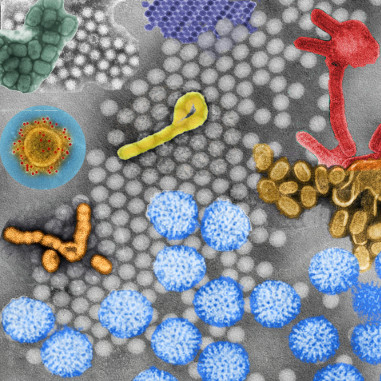
- Tagged as
- - Diagnostic reagent
- - Virus
- - Uncultivable virus
Originator
: Inoculum kindly provided by Don Lightner
https://profiles.arizona.edu/person/adhar
Produced by
: DEFRA-CEFAS Shipping From
: Weymouth - GB
Product Description
Ref-SKU:
021V-06063 Taura syndrome virus (TSV) infected shrimp tissue homogenate
Product Risk Group:
ICTV Taxonomy:
Virus name:
Isolate:
Genotype:
Storage conditions:
Viral Storage Medium -80C
Sequencing:
Complete genome
Infectivity:
Non cultivable virus sample, infectivity cannot be tested
Mycoplasmic content:
Not tested
Special feature:
GMO:
No
Biosafety restrictions:
Pathogens of fish, molluscs and crustacea are not covered by the Specified Animals Pathogens Order (SAPO) or UK Health and Safety executive (HSE) Advisory Committee on Dangerous Pathogens. There are no known zoonotic viral pathogens of the aforementioned aquatic animals. However potential release of a WOAH or EU listed pathogen into the environment would be serious, potentially affecting wild and farmed animals and disease-free status for certain diseases. Work with these viruses must be undertaken in a BSL 2 compliant facility at the minimum, with appropriate inactivation and disposal for all waste streams including from laboratory and aquaria based experimental facilities.
Virus host type:
Previous Name or Taxonomy:
Production cell line:
Genbank reference:
Virus Cultivability:
Passage:
>4, <10
Identification technique:
PCR and sequence
Shipping conditions:
IATA Classification:
Information about the collection of the virus
Recombinant product:
No
Biological material origin:
Natural origin
Collection date: BEFORE
Saturday, 31 December, 1994
Country of collection:
Suspected epidemiological origin :
Isolation host:
Isolation technique:
Laboratory challenge passage, tissue homogenate
Isolation conditions:
Laboratory tank challenge, seawater, 24 degrees Celsius
Clinical information:
Virulent isolate, >90% morbidity